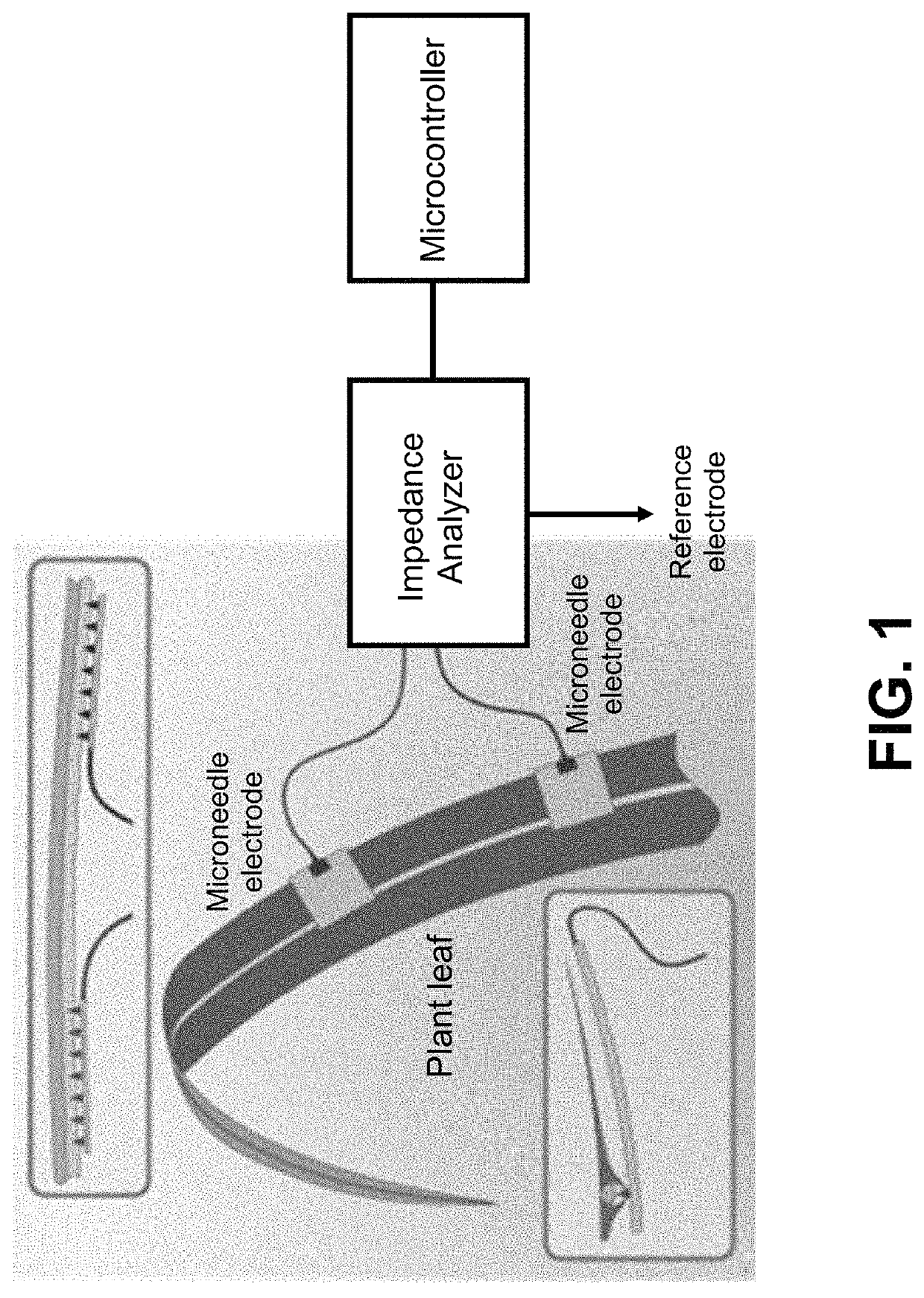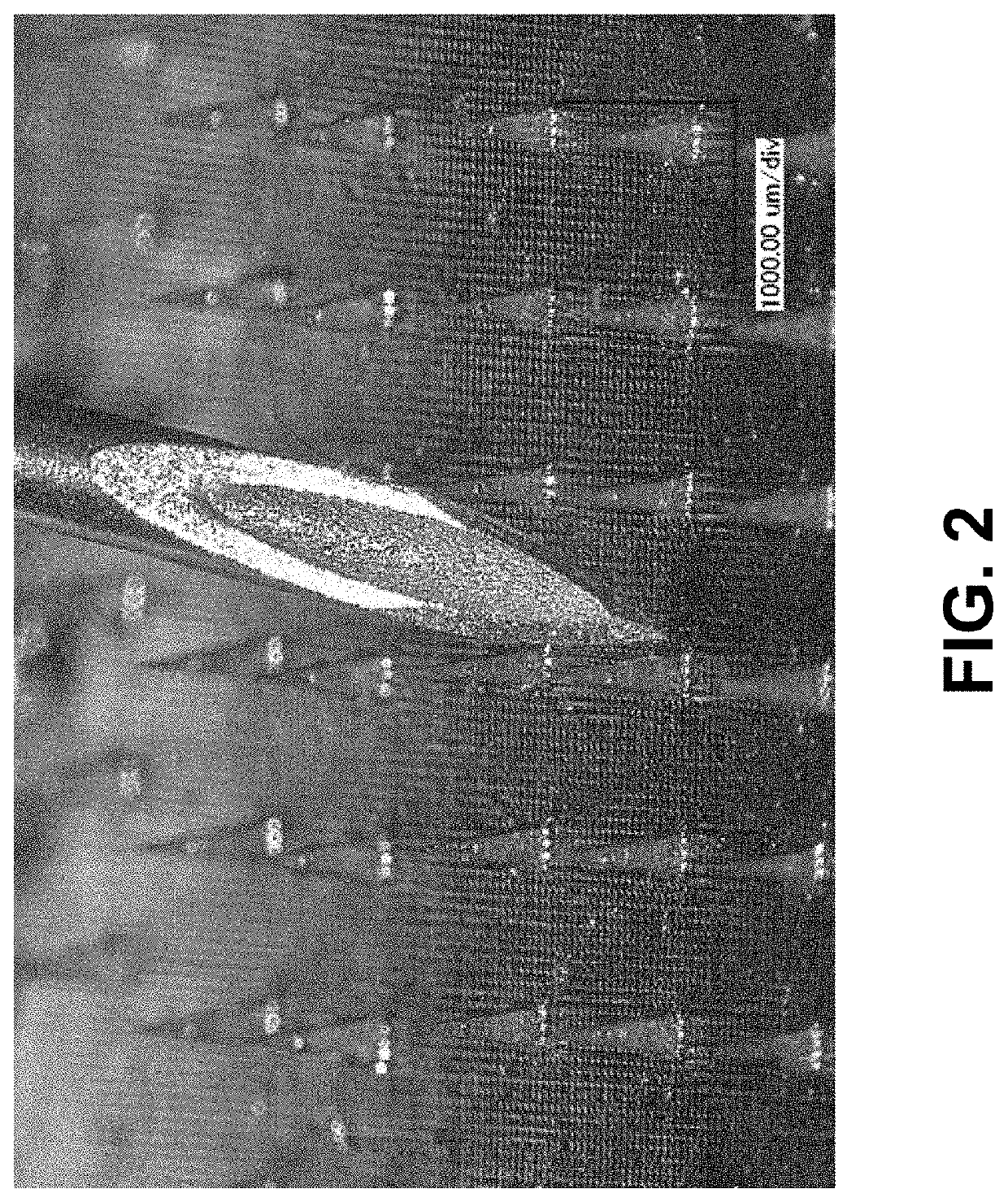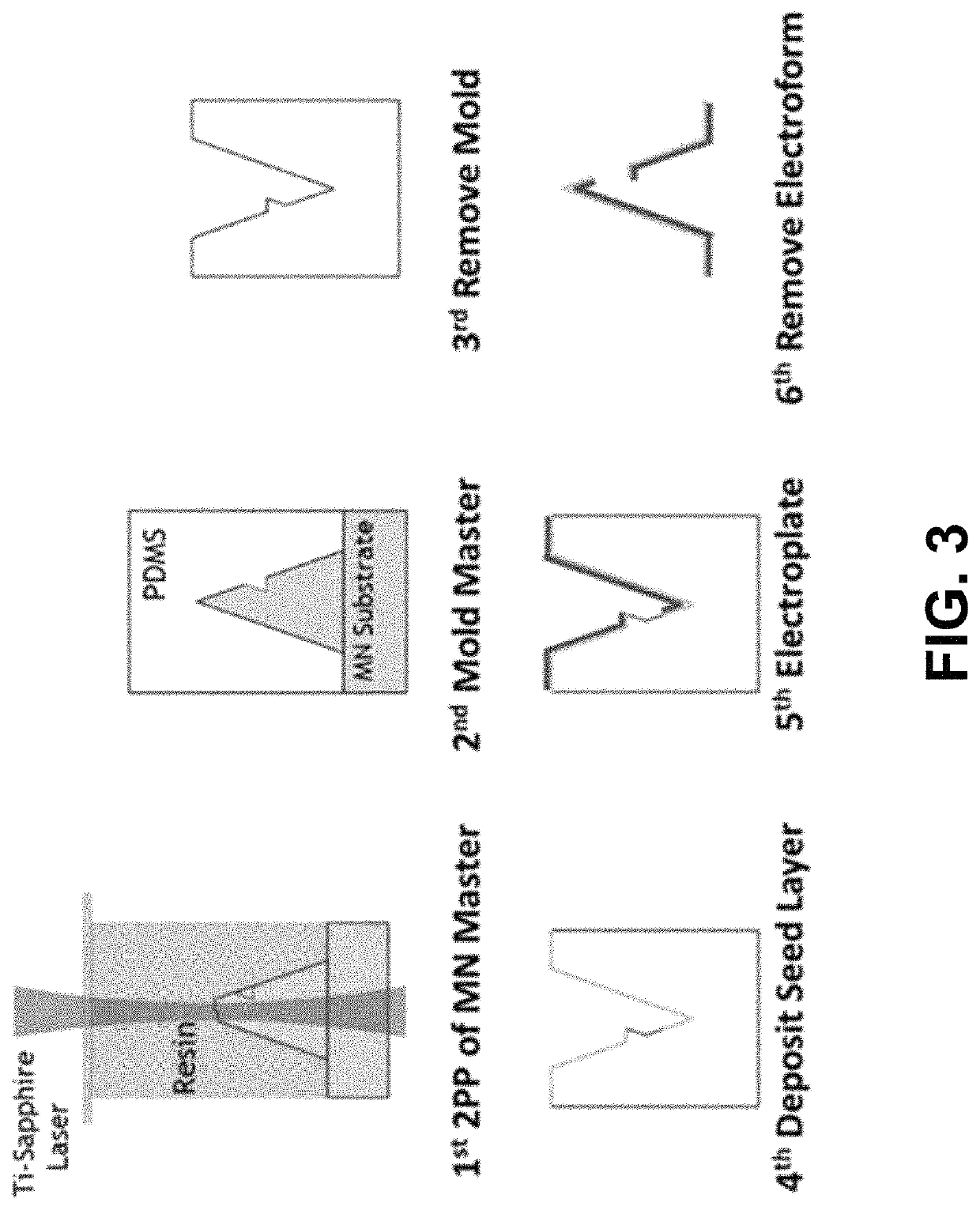Microneedle-based electrical impedance sensor to monitor plant water status in real time
a micro-needle and electrical impedance sensor technology, applied in the field of methods to measure plant water status, can solve the problems of affecting plant growth and production, affecting the biochemical properties of plants, and the time span of harvested tissue measurement, so as to improve plant biomass or fruit yield, and prevent irreversible damage to plants
- Summary
- Abstract
- Description
- Claims
- Application Information
AI Technical Summary
Benefits of technology
Problems solved by technology
Method used
Image
Examples
Embodiment Construction
[0014]The invention is directed to a sensor and method that use microneedles and multi-frequency electrical impedance spectroscopy (EIS) for the continuous monitoring of plant water potential and other data in the field and in real-time, without the need for a microscope or destructive sampling. As shown in FIG. 1, the sensor comprises at least two microneedle electrodes that can be inserted into the plant tissue, and an impedance analyzer that can measure the impedance response of the plant tissue to an alternating electrical signal (voltage or current) applied to a pair of microneedle electrodes in series. A plurality of such microneedle electrode pairs can be applied to the same plant or to multiple plants in dual or multi-terminal configurations. Each electrode can comprise an array of one of more microneedles. One of the electrode terminals can be placed in the soil surrounding the plant to measure impedance between a microneedle placed in the plant and the soil-based electrode...
PUM
| Property | Measurement | Unit |
|---|---|---|
| length | aaaaa | aaaaa |
| length | aaaaa | aaaaa |
| frequency | aaaaa | aaaaa |
Abstract
Description
Claims
Application Information
 Login to View More
Login to View More - R&D
- Intellectual Property
- Life Sciences
- Materials
- Tech Scout
- Unparalleled Data Quality
- Higher Quality Content
- 60% Fewer Hallucinations
Browse by: Latest US Patents, China's latest patents, Technical Efficacy Thesaurus, Application Domain, Technology Topic, Popular Technical Reports.
© 2025 PatSnap. All rights reserved.Legal|Privacy policy|Modern Slavery Act Transparency Statement|Sitemap|About US| Contact US: help@patsnap.com



